The Western Route Supervisory Board sat down to its first meeting at Paddington in April, in what is the industry’s latest effort to improve the running of Britain’s railways by increasing the level of integration between track and train operators.
Comprising Network Rail’s Western Route Managing Director Mark Langman, the MDs of operators Great Western Railway (Mark Hopwood) and Heathrow Express (Fraser Brown), plus passenger representation from Nina Howe of Transport Focus, the Board will meet every four weeks until the end of 2017, to trial the concept before its expected network-wide rollout early next year.
Its purpose is simple: to enhance joint planning, and to induce the creation of co-ordinated action plans to improve the passenger experience. Firmly within this remit, it will also be tasked with limiting disruption to services on a route that is currently undergoing significant investment in infrastructure and rolling stock, under the Intercity Express Programme and the much-criticised Great Western route modernisation.
Announced by Network Rail in February, this pilot scheme has its origins in NR’s wider strategy to devolve greater powers to route level, as advocated by the McNulty report in 2011 and by the Shaw report in 2016.
Both Sir Peter Hendy (NR Chairman) and Mark Carne (NR Chief Executive) have made decentralisation a priority under their leadership of NR, to improve the infrastructure company’s customer responsiveness and financial discipline. Their chosen method to achieve these goals has been to empower their eight Route MDs with much greater authority over decisions concerning procurement and expenditure, while enacting the structural changes that are needed to enable them to work much closer with train and freight operators.
Under this policy, routes have already been able to enter into formal operational alliances, and to align objectives through new scorecards. Going one step further, full vertical integration will be trialled in an isolated and targeted experiment by East West Rail, to reinstate the mothballed Varsity Line between Oxford and Cambridge over the next decade. Further details will be available once the findings are known of a scoping report (written recently but not yet published) by EWR Chairman Rob Brighouse.
The man challenged with making the first Supervisory Board a success is career railwayman Dick Fearn, whose independence from NR will help ensure that the voices of all parties are given equal weight during forthcoming discussions. He is also a lifelong advocate of devolved responsibility as a more effective means of running the railway.
Having held senior management positions at British Rail, Railtrack, Irish Rail and former operator South Eastern (see panel, page 50), Fearn is not only well-respected by industry, he also has valuable practical experience of decision-making from both the track and train operators’ perspectives.
He explains: “I have to bring my experience as one of the inputs to the party. I think one of the reasons I’ve been asked to do this is because I’ve had experience in the UK and Ireland managing railways at times of great change.
“I’m completely independent, and I have seen things from an operational view and vice-versa. One thing I have said is that everybody around this table is of equal value to me.
“I very firmly believe in a devolved railway, and one of the first things I did when I went to Ireland was to create route-based general managers. It worked very well for me, so when I was asked by Mark Carne to get involved in this Board as an independent chairman, I said yes straightaway.
“I now have to demonstrate that there’s a real keenness to develop Route Boards around the nation, so it’s very important to show the primary stakeholders that this is a good idea and it’s working.”
Although the idea has been publicly championed by Network Rail, Fearn is keen to stress at this early stage the guiding principle that the Supervisory Board is a joint enterprise, co-sponsored and co-funded by all its participants.
The primary target is to prove that the mutual benefits on offer from forming closer working relationships will be sufficient to repay each participant’s faith in the Board - in order to ensure its continuation beyond the end of the pilot, and to generate an appetite for Boards on other routes.
Fearn adds: “Mark Carne and Sir Peter Hendy are 100% behind this, and it has executive support from the Secretary of State for Transport and by extension the DfT . But I think what is more important than that, is that all the main TOC-owning (train operating company) groups are behind it - in particular the ones operating on the Western.
“There are particular benefits to smaller TOCs such as Heathrow Express because they get a shout that, without this opportunity, they might not. They are operating for just a few miles at the London end of the Great Western Main Line (GWML), on a route dominated by GWR. They might not get their voice heard over a big dominant operator normally, so the answer is a Route Board which gives a voice at the table to all players.
“At the end of 2017, I’m very hopeful that we’ll say ‘we’ve achieved this, this and this, which is all very positive’. Then we can look forward to 2018. I’m very much in for the pilot, but I’m determined to make it work and to stay for the long haul, because I want to see other route boards being created and other people like me chairing them, sharing best practice and so on.”
The Western Route was an obvious candidate to trial Supervisory Boards, given the scrutiny that NR has come under following significant delays and postponements to its electrification of the GWML. Erecting and energising the wires beyond their current limit of Maidenhead through to Cardiff will be more than 18 months later than expected, and will not be completed until 2019, while Swansea, Bristol Temple Meads, Oxford and other routes will all have to wait until sometime in Control Period 6 (2019-2024). Meanwhile, since 2013, construction costs have risen from £1.6 billion to £2.8bn.
This significant slippage of the timetable has also caused the re-engineering of 21 nine-car electric IEPs into a fleet of bi-mode trains that are due to begin entering traffic with GWR in October, but which will now need to run for much longer using diesel power. This has cost the DfT more than £300 million, while the Department will also receive less income from the franchise to recompense GWR for higher running costs and less passenger revenue than expected.
Against a backdrop of heavy criticism from the Public Accounts Committee over poor project management and cost control, Fearn says that meaningful passenger improvements can only be achieved by all parties focusing on the task in hand, rather than on the mistakes of the past. It is this ‘half full’ attitude that he hopes will come to define his chairmanship.
“One of the reasons I think the Western was chosen is because there aren’t any franchise changes at the moment. Of course, in future the Boards will have to be able to deal with that, but to run a pilot it’s probably not a good idea. The second reason is because to make intervention worthwhile there has to be something for the Board to get its teeth into.
“Current performance is probably going to be top of the agenda, and there are things we can do now to get it onto an upward trajectory. Then, of course, the number two item is the implementation phases of the various investment programmes. Yes, that means electrification, but it’s not the only one. There are also new trains and the introduction of Crossrail services on the route to be managed.
“There’s no point crying all night about the fact that electrification isn’t going as far as we thought. What we should be saying is ‘we’ve got electrification in its first phase and new trains coming, so let’s get on with that implementation’. Phase two could be very much hot on the heels of that, so I’m not a whinger who says ‘we should have done that’, let’s just crack on and get the best for the passenger. Then we can debate, strategically, what the next longer-term phase is.
“We shouldn’t lose sleep over what we might not be able to do, because it’s not in our gift. Let’s focus on the things we can do. If there’s one thing I’m saying to these board members early on, it’s: ‘Let’s jointly work together as TOCs, NR and Transport Focus to influence the things we can’.”
In the absence of any official power or executive status, the Board’s main weapons will be through discussion and reaching consensus on major issues. Fearn’s role will therefore be to mediate, and to occasionally remind the Board members of the need for unity when there is disagreement or a lack of mutual understanding.
He says: “I’m an independent chairman, so I can’t summon anybody to anything, but what I can do is encourage them that it is a useful avenue to them. People have already asked me ‘what can you do if you don’t have any executive power?’ The answer is they’re absolutely right, I don’t have any - but the other people around the table have a huge amount of executive power. Winning on this board is to channel their efforts through their executive power in a co-ordinated way.
“The board is a mechanism by which we can co-ordinate the efforts of those who do have the power to make things happen. Most people come to work to do a good job and make a difference, but sometimes their efforts are not co-ordinated with the next person who is trying to do exactly the same thing. Through this board and other boards, we can aspire to co-ordinate everyone’s efforts to the end result.
“How can we do that? One of the ways is to look at the same numbers. One of the problems with looking at performance reviews and objectives is that if we’re all looking at different numbers, it’s not a good start for co-ordinated action. On the Board we will have a shared route card - everybody is committed to having an open agenda, so that we can have the same numbers and objectives.”
Fearn will have several logistical complexities to deal with, not least in giving representation to freight or train operators that traverse the Western Route, regularly crossing its boundaries from one route to another.
There will also need to be some facility to work closely with neighbouring Route Boards, where there is clear common interest. This is especially important for improving performance on the GWML, which is covered by the Western Route from Paddington as far as the Severn Tunnel, before entering into Wales and under the auspices of a separate Route Board. These finer details are expected to emerge over the course of the pilot, once there has been an opportunity for them to be tried and tested.
Fearn reveals: “We are going to meet sometimes at Paddington, but over the rest of 2017 some of our meetings will be held out and about the route. What we’ll almost certainly do when we go out to a location is to bring in someone from that area who has a real interest in making this work.
“In the same way that the GWML runs in Wales , there are operators who run over the Western Route but who are not primary operators, such as CrossCountry and freight. One of the things we’ve said already is that from time to time we will want to hear from them.
“If CrossCountry represented itself on every Board they’d never do anything else, because their trains go across all the routes. They go all over the place so they’d have to attend half a dozen Boards, which might not be very easy. What we’ll do with those players where Western is only part of their business is periodically encourage them to come - I’ve already said there’s an open-door policy if they want.”
Fearn also has a message to supporters of nationalisation, who could point to the very need for a Supervisory Board providing further evidence of a lack of integration in the industry, driven by the separation of track and train operations made at the time of privatisation, two decades ago.
Having previously held senior management roles at the vertically integrated and nationalised operators British Rail and Irish Rail, he is in a strong position to measure the effectiveness of the current system against that of the old.
He concludes: “I’d say to them that when I was managing Irish Rail, which was a vertically integrated organisation, it didn’t stop departments from having the same problems. So when people say ‘these problems are all to do with privatisation’, it simply isn’t true. It doesn’t matter whether it’s a nationalised structure like in Ireland or at British Rail, or a very different structure like we have now in the UK, there is still every opportunity for people to go off in their separate ways.
“When I was spending lots of money modernising the network for Irish Rail, it would have been very easy for my civil engineer to have decided that the priority is this and for my signalling engineer to decide that it was something else, and if you’re not careful we’d have been doing backstroke all over Ireland.
“My job as chief executive was to say ‘hang on guys, we’ve got to scrum down here and get on’. That philosophy was exactly the same (as now), and the same level of co-ordination was necessary.”
This feature was published in RAIL 827 on 20th May 2017

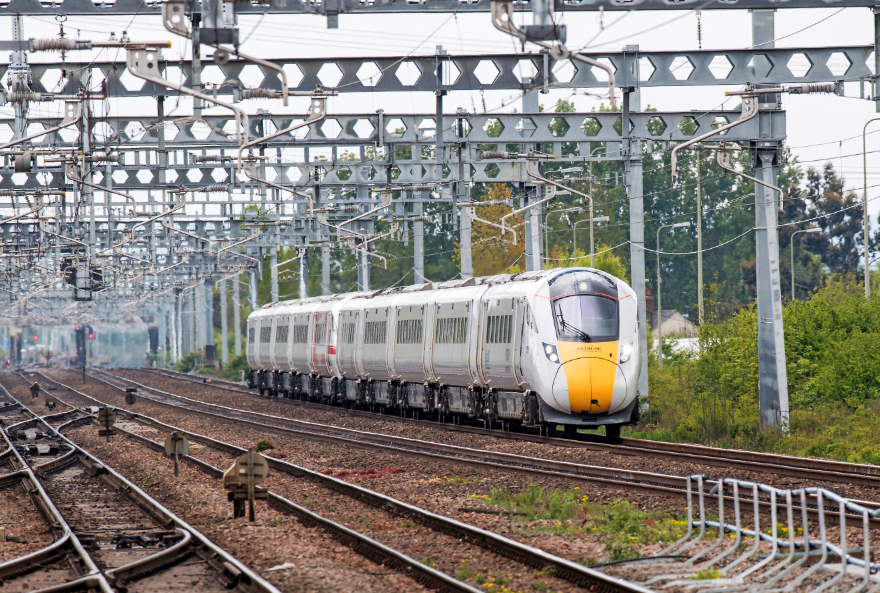
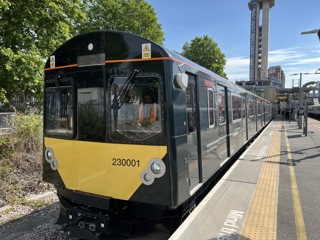
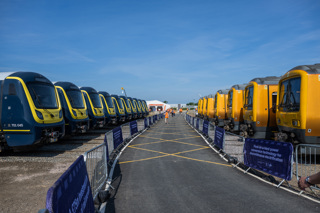
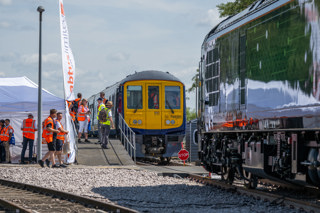
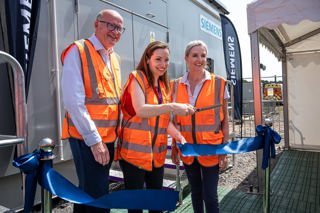
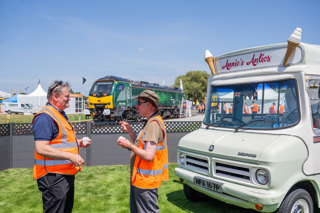











Login to comment
Comments
No comments have been made yet.